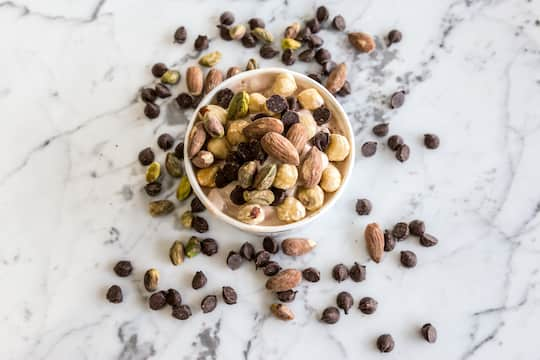HDL cholesterol, known as “good” cholesterol, is important in lowering the risk of heart disease.
Eating almonds improves the levels of ‘good’ cholesterol as well as removing ‘bad’ cholesterol, a study reveals.
Good cholesterol, known as high-density lipoprotein (HDL cholesterol), is important in lowering the risk of heart disease.
Almonds are nutritious and high in vitamins E and B.
They are also a source of minerals such as calcium, copper, iron, magnesium, manganese, phosphorus, and zinc as well as providing good levels of fat and fibre.
Almonds can raise the functioning of HDL cholesterol, which gathers ‘bad’ cholesterol from tissues like the arteries and helps to transport it out of the body.
The randomised controlled trial showed that the levels and function of HDL cholesterol were improved in people who had a diet with 43g of unsalted, whole, natural almonds a day for 6 weeks
This group was compared to people who had a similar diet, but instead of almonds ate a muffin.
The researchers found that while participants were on the almond diet, their HDL levels and functionality improved.
Professor Penny Kris-Etherton, an author of the study, said:
“HDL is very small when it gets released into circulation.
It’s like a garbage bag that slowly gets bigger and more spherical as it gathers cholesterol from cells and tissues before depositing them in the liver to be broken down.”
HDL cholesterol is categorised into different subspecies and particle sizes which range from the very small pre-β-1 HDL to the very large α-1 HDL.
High concentrations of pre-β-1 HDL and low concentrations of α-1 HDL, alone or in combination, have been shown to increase the risk of cardiovascular disease.
Introducing almonds to a low-fat diet improves HDL subspecies and function and prevents decreases in α-1 HDL, which is caused by the traditional low-fat diet.
Professor Kris-Etherton said:
“We were able to show that there were more larger particles in response to consuming the almonds compared to not consuming almonds.
That would translate to the smaller particles doing what they’re supposed to be doing.
They’re going to tissues and pulling out cholesterol, getting bigger, and taking that cholesterol to the liver for removal from the body.”
The study was published in The Journal of Nutrition (Berryman et al., 2017).

